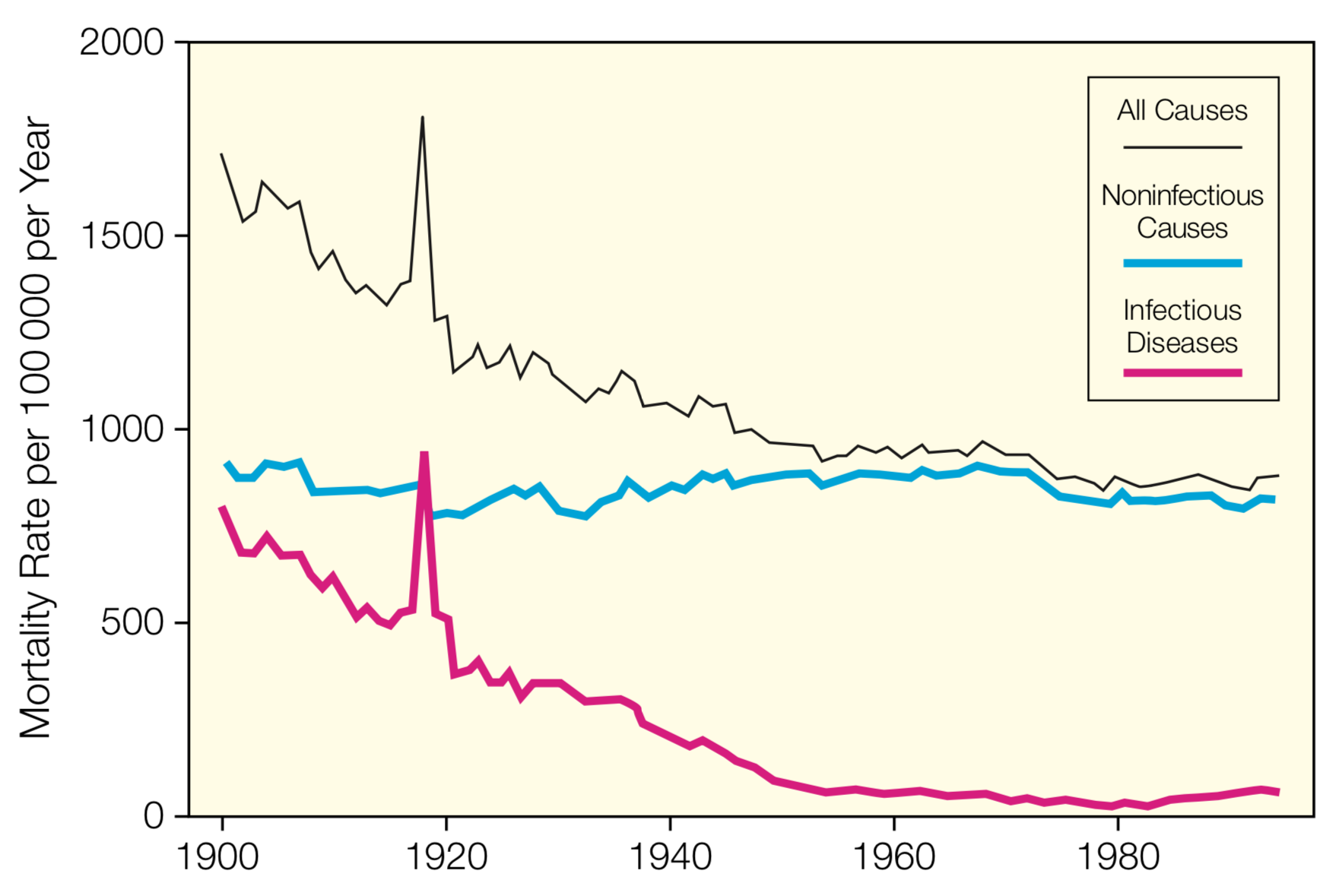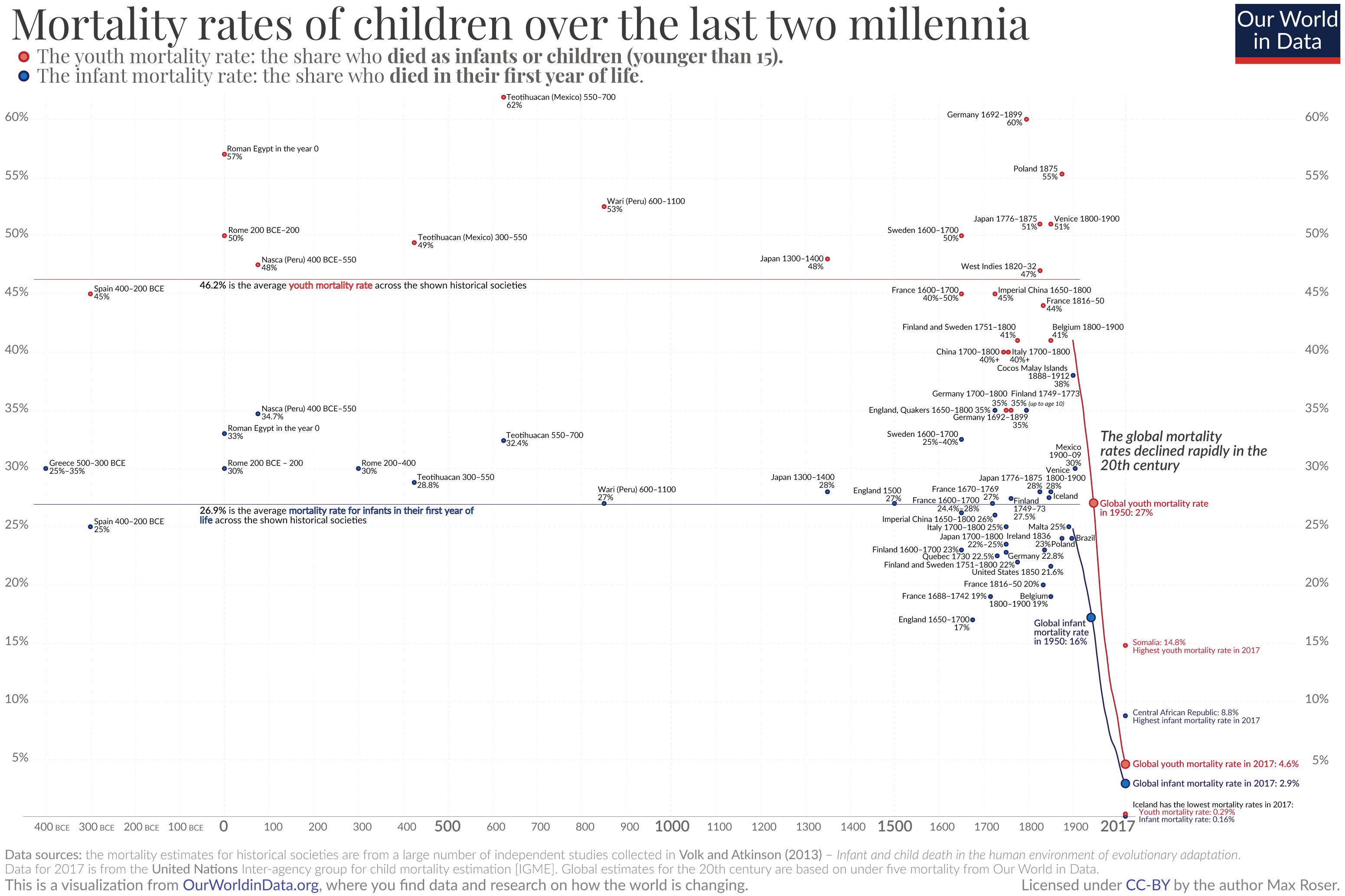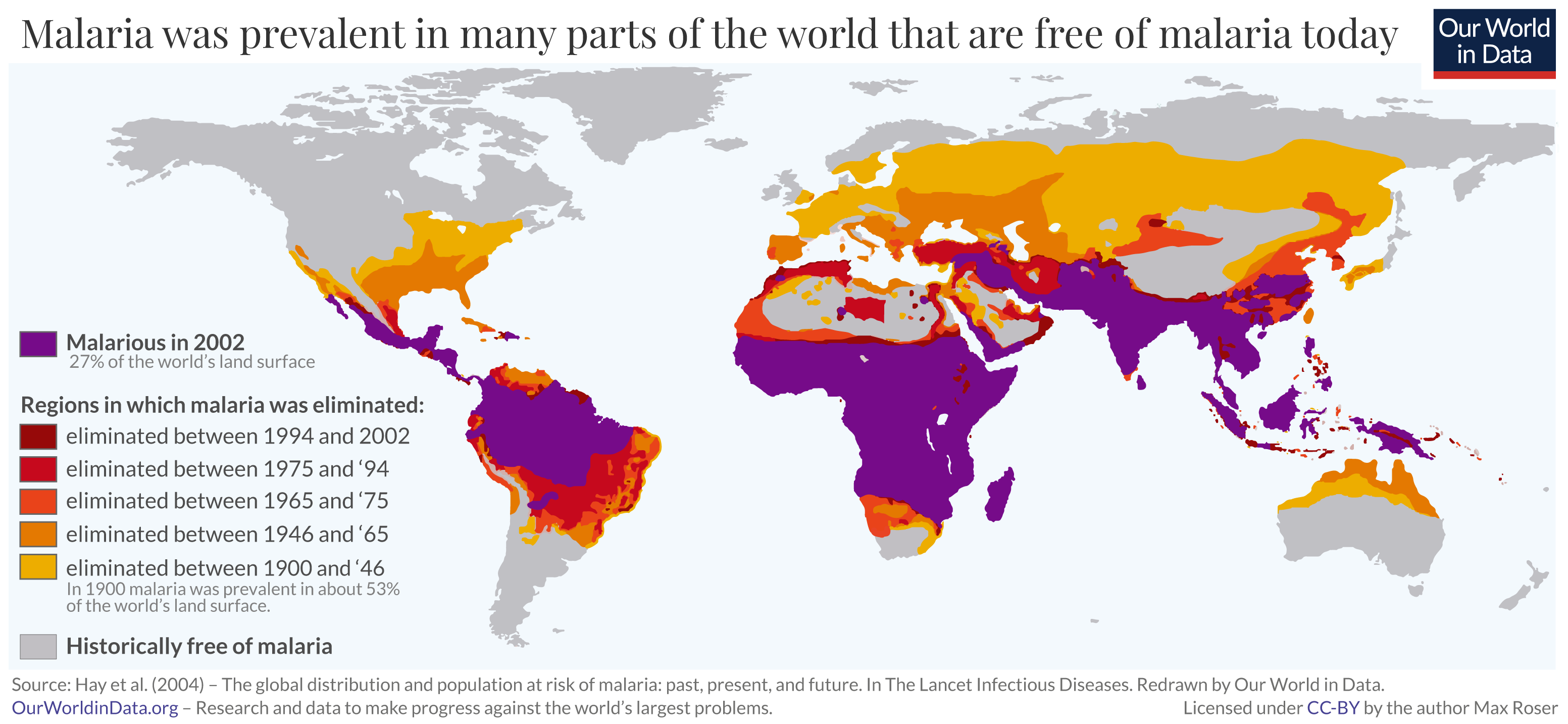Can we “cure” cancer?
by Jason Crawford · February 1, 2023 · 2 min read
In an excellent recent essay on “big visions for biology,” Sam Rodriques writes:
Ask most biologists about the cure for cancer, and they will tell you it doesn’t exist: cancer is many diseases that are mostly unrelated to each other, and that all have to be cured one at a time.
Are “most biologists” right about this?
We can get perspective on this from the history of infectious disease. After all, infection was also “many diseases,” with disparate causes (viruses, bacteria, protozoa) and disparate pathways (air, water, food, insects). And yet, while we did not exactly “cure infectious disease” (just ask the 248,544 people who got covid last week in the US alone), we did reduce every major metric of infectious disease by 90% to 99% in wealthy/developed countries:
- Overall mortality from infectious disease reduced by 90% in the 20th century alone
- Youth mortality (death before age 15) reduced from almost half to well under 1%
- Maternal mortality reduced from almost 1% to under 0.01%
- Surgical mortality reduced from half or more (for some major surgeries at least) to around 1% to 2%
Infectious disease was not the whole story in all of the above metrics, but it was the biggest factor in all of them.


We also eradicated smallpox worldwide and eliminated diseases such as cholera, malaria, and polio from many countries:

Did we have to cure all these diseases “one at a time”? No, not exactly:
- Sanitation and hygiene efforts were effective against broad classes of germs: e.g., water sanitation was effective against all water-borne diseases.
- Disinfectants and antiseptics, such as bleach, are effective against most if not all germs.
- Antibiotic drugs are effective against broad classes of bacteria.
- Vaccines do have to be developed one disease at a time—but even here there are general techniques for creating them. In fact, with mRNA technology, we now have a very general technique that can create new vaccines with relatively little adaptation.
Underlying all of this is a theory that explains the basic causal mechanism of infection: the germ theory. The theory alone doesn’t give us everything we need to cure each specific disease: new research is needed to understand the etiology and epidemiology of each one. But the theory does give us a conceptual framework and a set of tools to guide that research. Before the theory, we were able to make limited progress against some diseases; after it, we made much more rapid progress, and the diseases we weren’t able to solve became the exception rather than the rule.
I think we are in the pre-theory stage for cancer. We are able to make progress against some forms of cancer, as we reduced lung cancer by public health efforts against smoking. But we don’t, to my knowledge, have the fundamental theory that we need, and so overall progress is slow. [UPDATE: A commenter has convinced me that the “pre-theory” characterization is wrong.]
Infection and cancer are both “many diseases”—but those diseases have something in common. A deeper understanding of cancer will allow us to make much more rapid progress, on more fronts. There won’t be a silver bullet—no single treatment that will cure all cancers. More likely there will be a few major techniques, as with infection we had to develop sanitation, vaccination, and antibiotics; and even within each of those categories, we needed many specific efforts to develop each individual vaccine, antibiotic drug, and sanitation method.
But there is no reason why we can’t do for cancer what we did for infection: reduce it by orders of magnitude and knock it down from a number one cause of death to a much more minor and more manageable threat. And eventually, with more advanced science and technology, perhaps we will be able to truly cure both of them.
